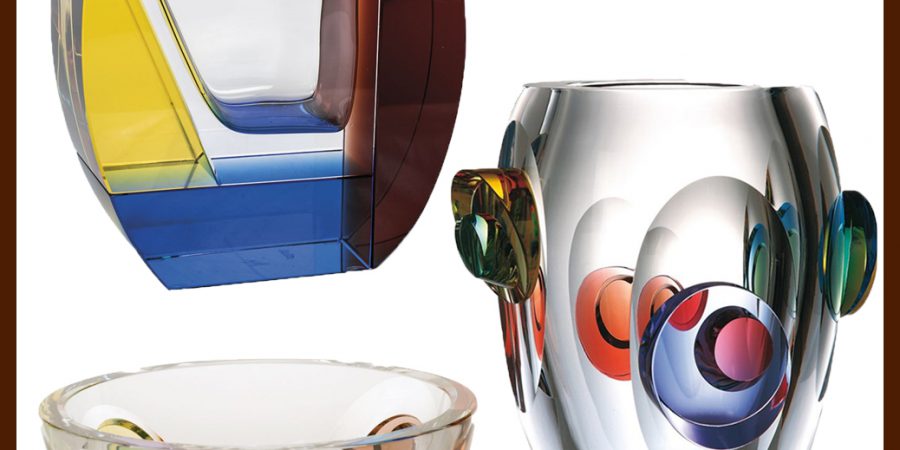“King of Glass, Glass of Kings” – such is the slogan tagged to the world famous glass manufacturer company, Moser. The epithet stems from how the company attracted royal clientele since its beginning in 1857, including the Austrian Imperial Court, Pope Pius XI, the Turkish sultan Abdul Hamid II and the king and queen of Portugal, Luis I and Maria Pia of Savory. Despite the high regard and the world famous reputation, Moser is surprisingly widespread beyond palaces, owing it to the cult following it built among collectors of glassware. It remains the most collected of 20th century decorative glass (i.e. vases, candle holders, ashtray and etc) though the brand manufactures anything ranging from stemware to engraved glass gifts.



Moser was found by Ludwig Moser in Karlovy Vary in 1857. Initially a glass carving workshop dedicated to polishing and engraving glass blanks, it rarely partook in the decision making process of the design. When the craftsmanship of the workers proved to be exceptional, and the artists who performed the unique engravings received recognition from prestigious establishments such as the Vienna International Exhibition of 1873, the focus shifted to becoming a full service glass works manufacturer. In 1893, Moser purchased a glass factory, employing over 400 workers, most of them young artists. From then on, the company undertook the task of designing its own glassware, while retaining the techniques of cutting and polishing the glass that ensured quality product in its early years.

In the early 20th century, Moser experienced a steep incline in popularity. It gained a warrant to serve the Imperial Court of the Emperor of Austria and also became the supplier of the royal court of Edward VII. A few years later Moser exhibited at the Panama Pacific International Exposition, where it was awarded merit for the outstanding quality of its competing pieces, that featured hot glass application decorations on Bohemian glass, which became known as part of the Fipop series. The popular international art movement of the time, Art Nouveau, which emphasized dynamism and movement through exaggerated asymmetry and curved lines, heavily influenced Moser designs and laid the groundwork for later styles employed by the artists, many of which came to be trademark styles.

The expansion and the success of Moser was limited during the 1930’s, when all of Europe entered an economic depression. Not long after, parts of Czechoslavakia including Karlovy Vary was annexed by Nazi forces, which led to the family selling most of the company shares and fleeing the country. Even with the abandonment of the physical estate in Karlovy Vary, the sheer influence of Moser allowed it to maintain its market presence, well throughout Soviet rule. It was one of the few companies that remained financially and lawfully independent, in a time of socialist economy when all businesses were owned by the government. During this time, it also branched out to create more contemporary pieces with eccentric detailing. The style has survived till the present day.



The quality of Moser products is uncontested and one of the reasons for the consistency is the grueling technique to ensure quality, that is employed by the craftsmen. It is also widely known that the base glass for all of the pieces is derived from an ecologically sustainable source, sodium potassium glass, which is lead free. Lead glass, besides being a health hazard to children, is the less ecologically-friendly choice. The sodium potassium glass is extremely hard and in the case of Moser pieces, very heavy which makes the carving and engraving of detailed illustrations on it, no easy task. Because the pieces are rounded, all designs are made after the glass is cut, which means that the craftsman often hold the heavy cut glass to the carving tool at specific angles for hours at a time, to achieve the correct shapes and forms. The video below chronicles the process.
Because glass is so revered for its light reflective properties when shaved or polished in specific ways, it has remained the only choice for the brand, as Moser has been unwilling to compromise on its age old practices that have led to the exquisite timeless pieces, such as these:







Moser is a unique brand with a rich history, with no plans of slowing down the momentum that has carried its timeless pieces. It goes beyond creating items that guarantee quality and long time use; it is by now an undeniable master of its craft and the long reigning King of its art.
